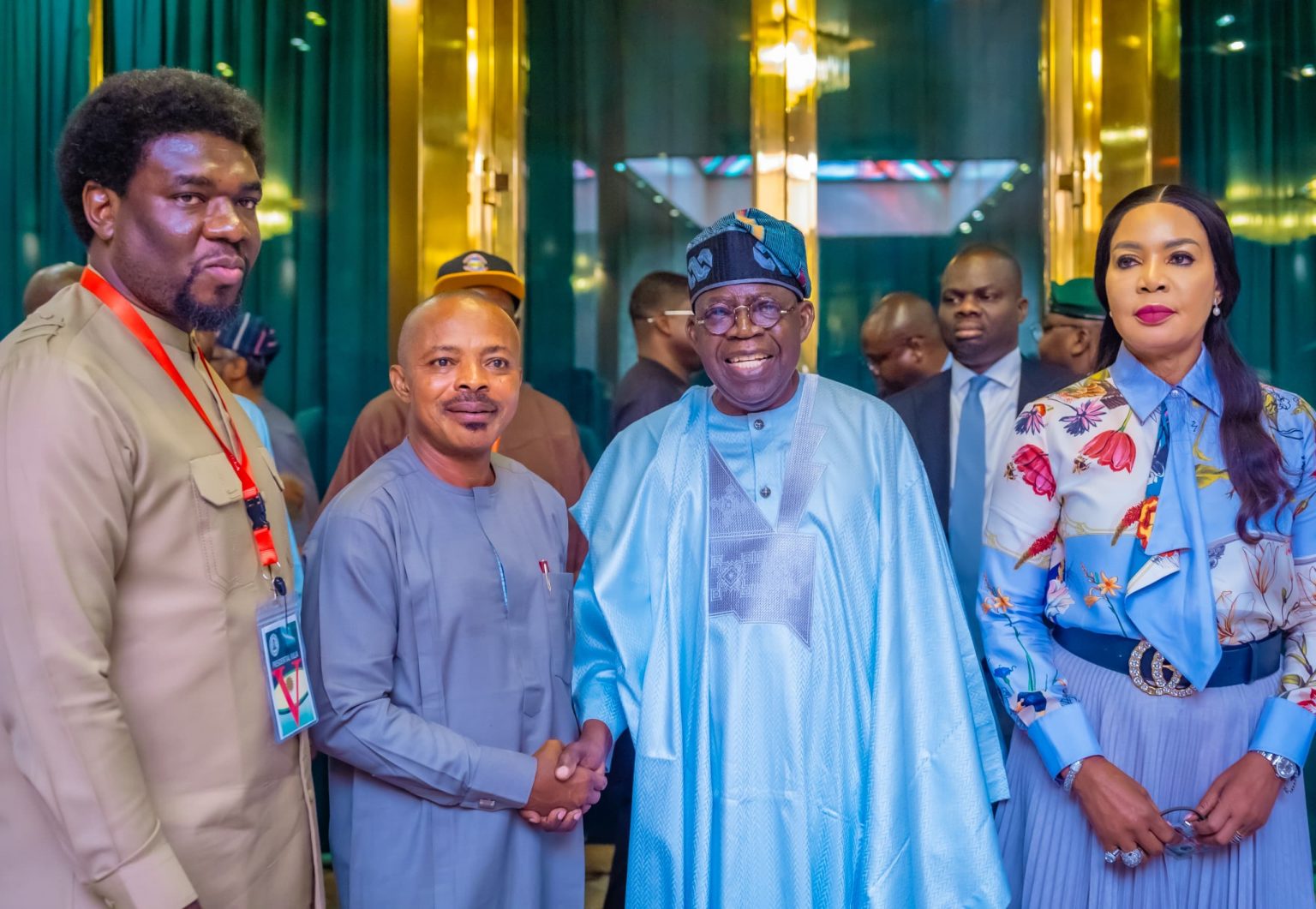Notice: Undefined index: banner_ad_width in /home/ayekooto/public_html/wp-content/plugins/quick-adsense-reloaded/includes/render-ad-functions.php on line 359
Notice: Undefined index: image_width in /home/ayekooto/public_html/wp-content/plugins/quick-adsense-reloaded/includes/render-ad-functions.php on line 359
Notice: Undefined index: banner_ad_height in /home/ayekooto/public_html/wp-content/plugins/quick-adsense-reloaded/includes/render-ad-functions.php on line 360
Notice: Undefined index: image_height in /home/ayekooto/public_html/wp-content/plugins/quick-adsense-reloaded/includes/render-ad-functions.php on line 360
Tinubu and Labor agree on N70,000 as the minimum wage: NASS gets bill Tuesday
By: Adisa Deborah
The National Assembly will get an executive bill on the new national minimum wage, which President Bola Tinubu and the Nigeria Labour Congress have agreed on.
The rate, which replaces the recently expired N30,000 minimum wage, will be reassessed every three years. The President orders NASU payment, SSANU salaries are withheld, and the OPS rejects the electricity pricing.
The President introduced a new salary baseline, reaffirming the Tripartite Committee’s record of resolving worker concerns. After a three-year assessment, the President agreed to set a minimum wage of N70,000 for all government establishment employees. The committee had given two different estimates, with the government and commercial sector offering N62,000 and organized labor requesting N250,000.
Nigeria’s President, Mohammed Idris, has requested extra time to confer with important stakeholders on a national minimum wage. He met with the organized private sector and sub-nationals, but the meeting was postponed owing to a dispute. Idris, Minister of Information and National Orientation, referred to the meeting as a “happy day” for Nigeria. The administration has also promised huge investments in infrastructure and renewable energy, including CNG buses while emphasizing local government authority.
The President of Nigeria has decided to raise the minimum pay for organized labor in Nigeria, with the new national minimum salary estimated to be N70,000. The President also promised substantial infrastructure spending and increased federal funding for renewable energy. The topic of the Senior Staff Association of Nigerian Universities (SSANU) and the Non-Academic Staff Union (NASU) will also be discussed. The President complimented the labor leaders for their patriotism and underlined the need for local government autonomy and collaboration between the government and organized labor in Nigeria.
Nigeria’s President, Nkeiruka Onyejeocha, has advocated that the minimum wage policy be revisited every three years, rather than the five-year cycle. The President has asked Wale Edun, Finance and Coordinating Minister of the Economy, and Abubakar Bagudu, Minister of Budget and Economic Planning, to review the SSANU and NASU payments. The President has reassured Nigerians of his commitment to economic recovery and citizen welfare, while also noting the current financial circumstances.
The National Assembly has agreed to a wage rise of N70,000 for NASU and FCT, plus incentives such as CNG to lessen the labor load. TUC President Osifo has called for a generous response to the SSANU and NASU conflicts. The Organised Private Sector of Nigeria (OPSN) backs the President’s decision and advocates for tailored student loan schemes. Government authorities are reducing the economic burden through measures such as increased electricity prices, CBN redemptions, tax freezes, duty exemptions, and government subsidies.
Ibrahim Abdullahi, the PDP’s Deputy National Publicity Secretary, has attacked the Federal Government’s N70,000 minimum salary as insufficient for Nigeria’s current economic reality. The Labour Party and the New Nigeria People’s Party applauded the deal, while Obiora Ifoh underlined the importance of ongoing engagement and negotiations to prevent additional divisions. The minimum wage is intended to reduce the cost of living, but the emphasis should be on moving the economy from consumption to production.



Comment here